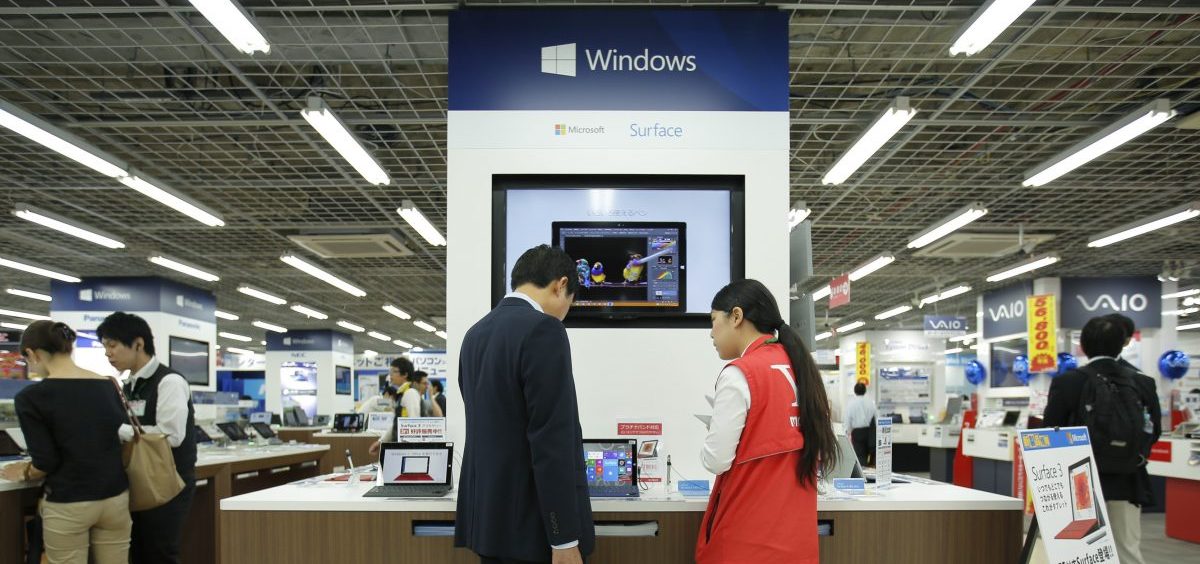News

4-Day Workweek Boosted Workers’ Productivity By 40%, Microsoft Japan Says
By: Bill Chappell | NPR
Posted on:
Workers at Microsoft Japan enjoyed an enviable perk this summer: working four days a week, enjoying a three-day weekend — and getting their normal, five-day paycheck. The result, the company says, was a productivity boost of 40%.
Microsoft Japan says it became more efficient in several areas, including lower electricity costs, which fell by 23%. And as its workers took five Fridays off in August, they printed nearly 60 percent fewer pages.
All of the employees who took Fridays off were given special paid leave, the company says. Encouraged by the results, it plans to hold a similar trial in the winter.
Because of the shorter workweek, the company also put its meetings on a diet. The standard duration for a meeting was slashed from 60 minutes to 30 — an approach that was adopted for nearly half of all meetings. In a related cut, standard attendance at those sessions was capped at five employees.
In a blog post announcing the plan in July, Microsoft Japan said there was often no reason for meetings to run an hour, or to tie up multiple people from the same team.
Citing the need for a shift in time management, the Microsoft division also urged people to use collaborative chat channels rather than “wasteful” emails and meetings.
The news prompted excitement among many workers in Japan. A sampling of comments from the Asian news site Sora News 24 ranges from “Here’s to hoping my boss reads about this” to “So I guess me feeling like I’m ready to be done for the week by Wednesday is pretty natural.”
Four-day workweeks made headlines around the world in the spring of 2018, when Perpetual Guardian, a New Zealand trust management company, announced a 20% gain in employee productivity and a 45% increase in employee work-life balance after a trial of paying people their regular salary for working four days. Last October, the company made the policy permanent.
The Microsoft trial roughly doubled Perpetual Guardian’s productivity gain. But for now at least, the company isn’t saying whether it will test the four-day workweek policy in other locations or consider making it permanent.
Noting that Microsoft Japan’s “Work Life Choice Challenge 2019 Summer” was a pilot project, a Microsoft spokesperson tells NPR via email, “In the spirit of a growth mindset, we are always looking for new ways to innovate and leverage our own technology to improve the experience for our employees around the globe.”
Many employees might be heartened by the prospect of a three-day weekend, but trials like the recent one in Japan are still only drops in a very large bucket of companies and workers worldwide. While employers could now be more likely to experiment by shortening their own workweeks, workplace analyst and author Dan Schawbel says that for the time being, employees are more likely to focus on a more common workplace perk: flexibility.
“Younger people actually choose work flexibility over health care coverage, even though that expense in America is pretty high,” Schawbel says.
In the U.S., Schawbel sees schedule flexibility and a four-day week as two ways for employers to ease what he calls an ongoing burnout crisis.
At the heart of the discussion of workplace burnout and schedule flexibility is technology. The same electronic tools that have made working from home easier than ever have also made it harder for employees to fully unplug from their jobs when they aren’t in the office.
It’s an area that’s already being explored in Europe, home of some of the world’s strongest work-life-balance laws. France has granted employees the right to disconnect from their jobs, limiting email and other communications after hours, for instance.
But there are signs that the shorter workweek may increasingly become a political issue, similar to parental leave and other benefits. In the U.K., the Labour Party recently made the four-day workweek — at no change in pay — one of its central policies.
Backers of such moves point to a general trend toward shorter workweeks. When Labour embraced the idea, shadow chancellor John McDonnell was quoted by Labour List as saying, “the average full-time working week fell from nearly 65 hours in the 1860s to 43 hours in the 1970s.”
Since the 1970s, the workweek has stopped shrinking despite sharp gains in worker productivity, McDonnell said. And as U.S. economists have noted, compensation has lagged behind productivity in that same period.
In 2017, a U.S. Bureau of Labor Statistics report found that from 1987 to 2015, productivity rose by as much as 5% annually in industry sectors from information to manufacturing and retail — but compensation never grew by more than 2% in each year of that same period.
Faced with decades of stagnant wage growth, it seems that many workers are now seeking more flexibility — and dreaming of a shorter workweek.
But the current enthusiasm for a four-day workweek should not be taken as proof that today’s employees simply want to avoid work altogether. To illustrate that point, Schawbel refers to what he calls “the money question” from an often-cited 2018 survey he conducted with Kronos.
The question was straightforward, as Schawbel recalls: “If your pay is constant, how many days a week do you want to work?”
One of the potential replies to that question was simply, “None.” But only 4% of the workers chose that answer. Only slightly more people chose one day, or two.
The biggest portion — 34% — said they want a four-day workweek. The current standard five-day week got 28% support. And 20% said they would prefer a three-day workweek.
“It’s important,” Schawbel says, “because it shows people want to work.”
9(MDI4ODU1ODA1MDE0ODA3MTMyMDY2MTJiNQ000))

